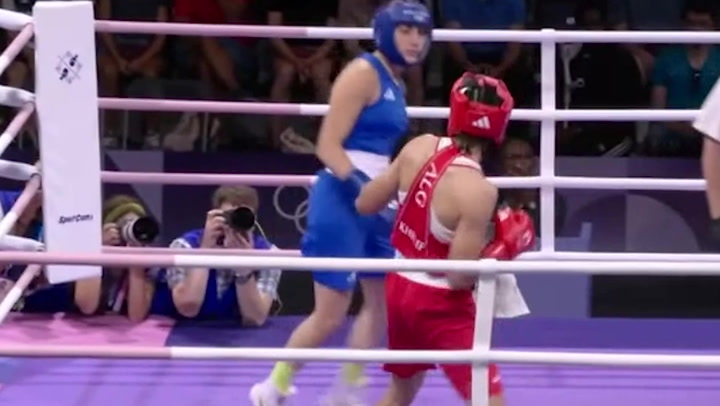The International Boxing Association (IBA) held a tumultuous news conference on Monday, leaving many questions unresolved regarding an eligibility controversy that has overshadowed boxing at the 2024 Olympics.
Algeria’s Imane Khelif and Taiwanese fighter Lin Yu-ting are assured of at least bronze medals in the women’s competition in Paris, having been cleared to participate by the International Olympic Committee (IOC).
This decision comes despite their disqualification from the 2023 Women’s World Championships, where the IBA, the event’s organizer, claimed they had failed gender eligibility tests.
The IBA, which was stripped of its status as the governing body of amateur boxing by the IOC in 2019 due to concerns over governance and regulation, convened a news conference in Paris.
The conference was intended to clarify the disqualification issues with insights from IBA President Umar Kremlev and Chief Executive Chris Roberts.
However, the news conference, delayed by technical issues and lasting over 100 minutes, resulted in conflicting and often contradictory statements from Kremlev and Roberts regarding the disqualifications.
What did the IBA say?
Roberts claims Khelif and Lin were first tested at the 2022 World Championships in Istanbul, Turkey but no action was taken as the results were “inconclusive”.
He said the fighters’ disqualifications from the following year’s World Championships in New Delhi, India came after the results showed they were “ineligible”, in accordance with the IBA rules.
“The results of the chromosome tests demonstrated both boxers were ineligible,” said Roberts.
But while Roberts said the pair had “chromosome tests”, Kremlev appeared to suggest the tests were to determine the fighters’ testosterone levels.
Testosterone is a hormone that can increase muscle mass and strength. Chromosomes carry genetic information including a person’s sex.
“They have very high levels of testosterone,” said Kremlev, who joined via video link and spoke through a translator.
“We got the test results that they allowed us to make and these test results show they have high levels of testosterone, like men.”
Kremlev, who reiterated his previous criticisms of IOC President Thomas Bach, stated that if boxers wish to prove their gender identity, they must do so independently.
The IBA claimed that the eligibility tests for the athletes were sent to two World Anti-Doping Agency (WADA)-accredited laboratories.
However, WADA clarified to BBC Sport that it does not oversee gender testing, focusing solely on anti-doping matters.
Last week, the IOC criticized the “aggression” towards Imane Khelif and Lin Yu-ting, describing it as based on an “arbitrary decision” made without proper procedure.
The BBC has not reviewed the results of the IBA’s eligibility tests and has yet to determine their nature.
While many other sports, including athletics, cycling, and swimming, have imposed bans on transgender women and stricter criteria for athletes with differences in sex development, boxing adheres to the IOC’s policy that competitors are eligible for the women’s division if their passports identify them as female.
Earlier on Monday, IOC spokesperson Mark Adams defended Khelif and Lin’s inclusion in the Paris Games.
“These athletes have been competing in senior competitions for six years with no issues,” said Adams.
“These women were eligible for this contest, remain eligible for this contest and compete in this contest.”
Khelif and her team have not yet responded to the IBA, but she has said: “I want to tell the entire world that I am a female, and I will remain a female.”
The Algerian Olympic Committee (COA) has previously condemned the “malicious and unethical attacks” against Imane Khelif, describing them as directed by certain foreign media.
Neither Lin Yu-ting nor the Taiwanese Olympic Committee has made any comments on the situation.



